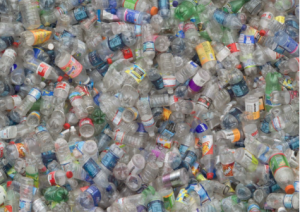By Seamus Crowley ’18 (Geology and Environmental Geography Major from Aspen, CO)

Every year move-in day is an exciting time, and one of the first things everyone wants to do after setting up their room is make the inaugural trip to the grocery store. Everyone wants to load up on a great snack supply for the start of the year, especially after lugging all of their stuff up four flights of stairs. Students come back with enough food to last them through a Colgate winter, but that’s not the only thing they come back with. Watching some students come back to their residence hall, I noticed one carrying a 24-pack of bottled water into the building. Then I saw, one after another, many more students traipsing up with more of the same cases of bottled water. They must have brought 200 bottles into the building in a span of 30 minutes. That’s when I realized Colgate has a bottled water problem.
It was completely perplexing to me that students would actively choose to spend money on water when it is available, free of charge in their very own residence halls. What’s worse is that students were actively choosing, the environmentally irresponsible mode of obtaining drinking water. I was confused by all of this, or at least I was until an interaction occurred between two friends. One friend said it was gross that the other was filling up her Nalgene from the bathroom faucet, alleging that the water wasn’t clean enough. I was very surprised at this; it appears that some students have a strong aversion to tap water because they have the vague belief that our tap water is unsafe. In fact, the water from our sinks is perfectly fit to drink, as is all water available to students on campus and in the village of Hamilton. The consumption of bottled water on campus serves no purpose in terms of quality, convenience, or economic sense. Most importantly, however, the use of bottled water is nonsensical due to its destructive impact on the environment.
The process of creating and transporting bottled water is not typically thought of by the average consumer, but everyone should be aware of what goes into each bottle before deciding to buy yet another case. The plastic of the bottle is usually polyethylene terephthalate, a product of crude oil, which means that they can never truly degrade.1 Worse still is the fact that it takes three times the amount of the water in a bottle to manufacture the bottle itself.1 This process, in addition to the impact of the transportation of the bottles, results in every single bottle of water producing a carbon footprint of 82.8 grams of CO2, a total of more than 2.5 million tons of CO2 per year in America alone.2 With this level of environmental impact, it is purely irresponsible to support the production and consumption of bottled water.
The wasteful use of bottled water is a problem common to college campuses across the country. However, some universities have taken it upon themselves to ban bottled water on their campuses. I believe that Colgate should do the right thing and follow suit. Colgate should undoubtedly join the movement to ban bottled water that has already been taken up by our peers at other schools. In the meantime however, students should simply voluntarily utilize refillable water bottles and quality tap water to instantly start reducing their waste and carbon footprint, thus leading our campus community to a more sustainable and environmentally conscious future.
1. http://www.dw.com/en/life-cycle-of-a-plastic-water-bottle/g-17266360
2. http://elua.com/wp-content/uploads/2013/08/Elua-Bottled-Water-and-Our-Environment.pdf

